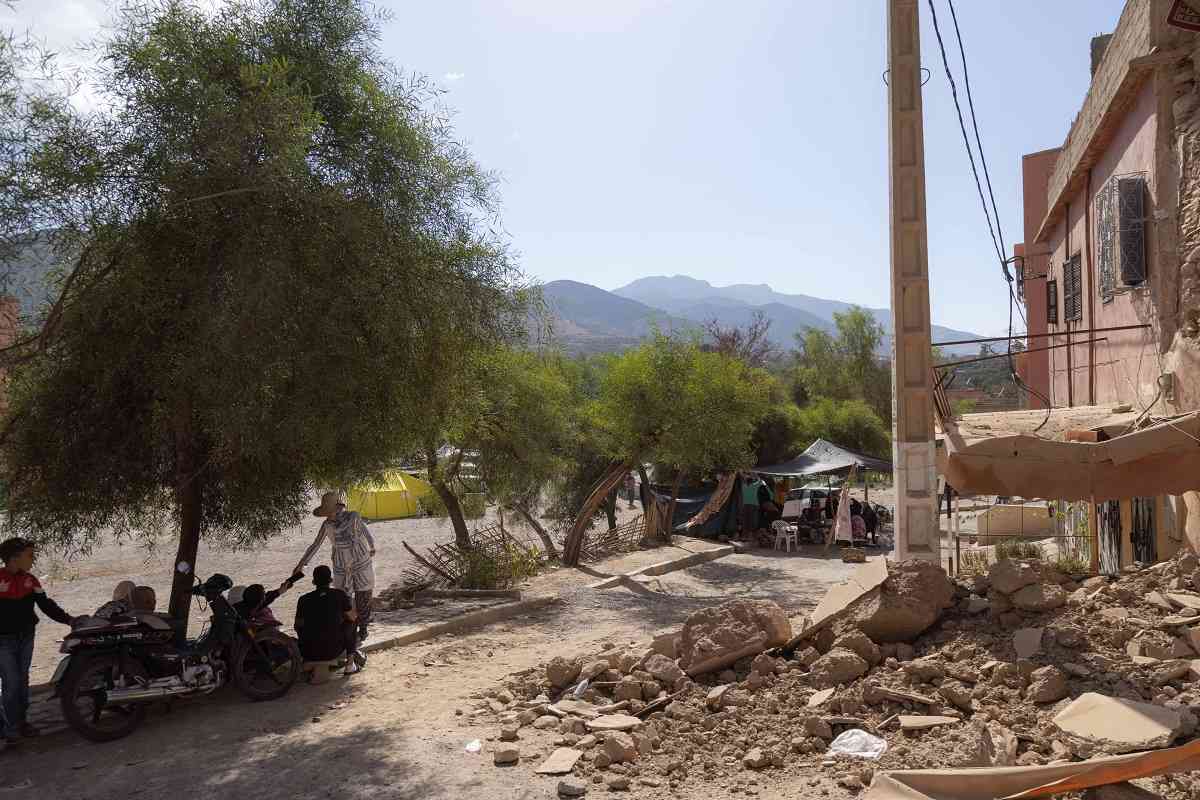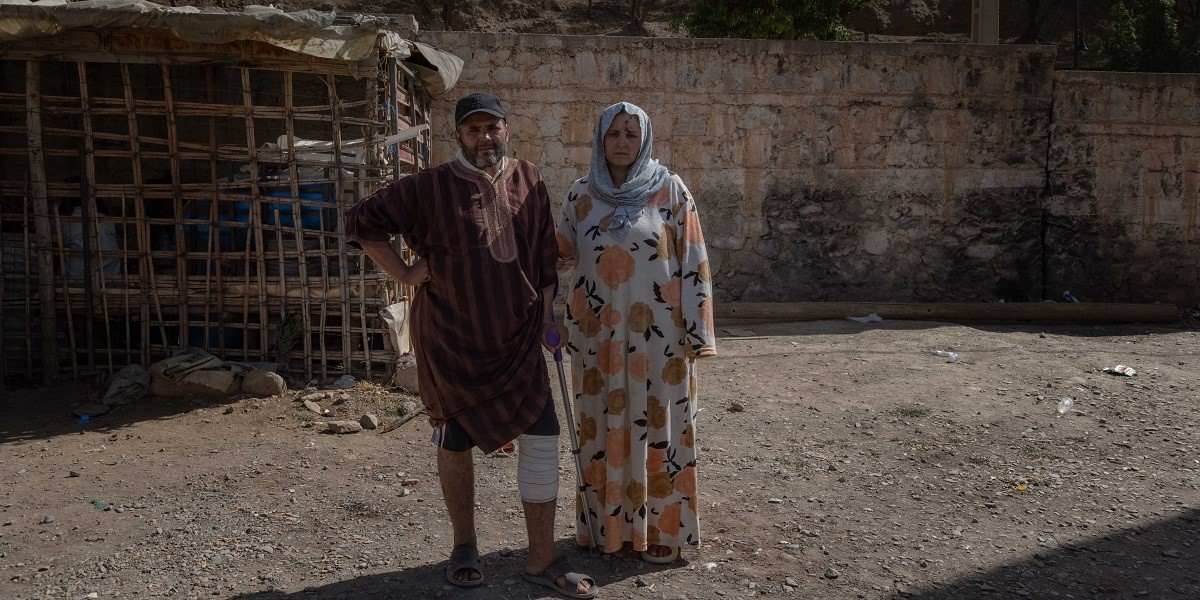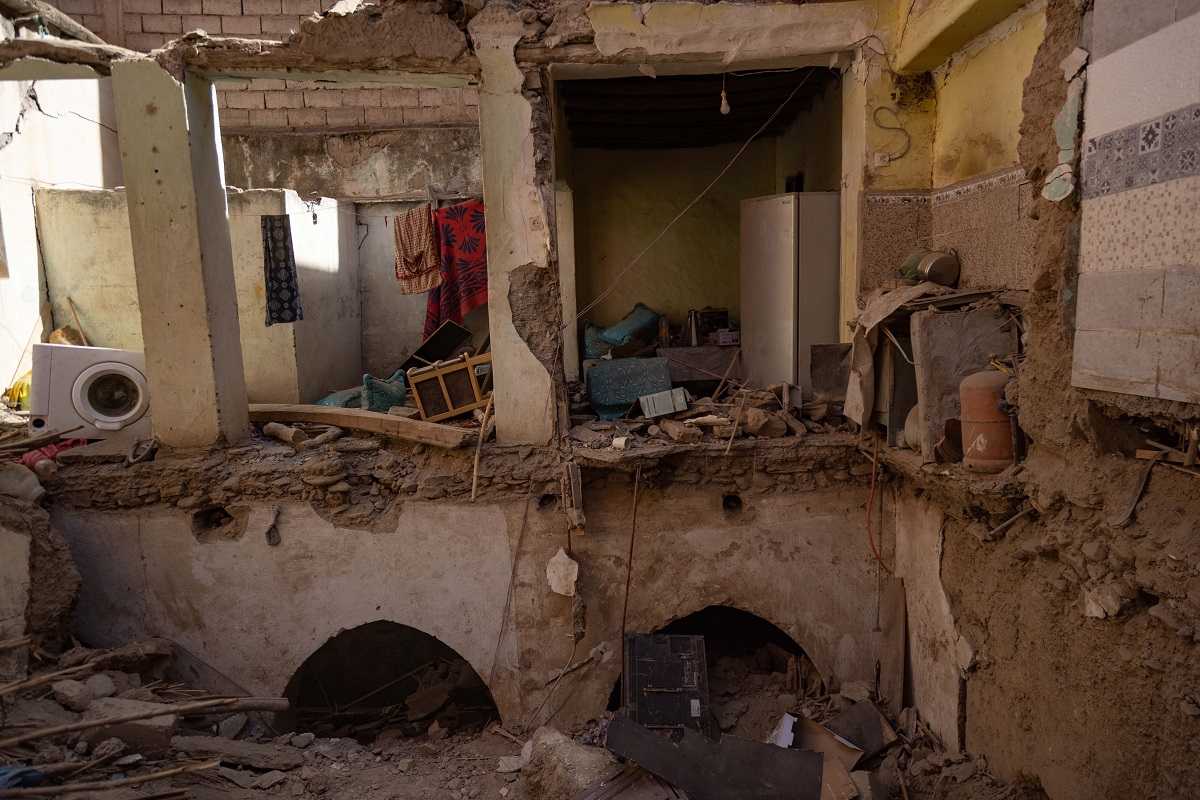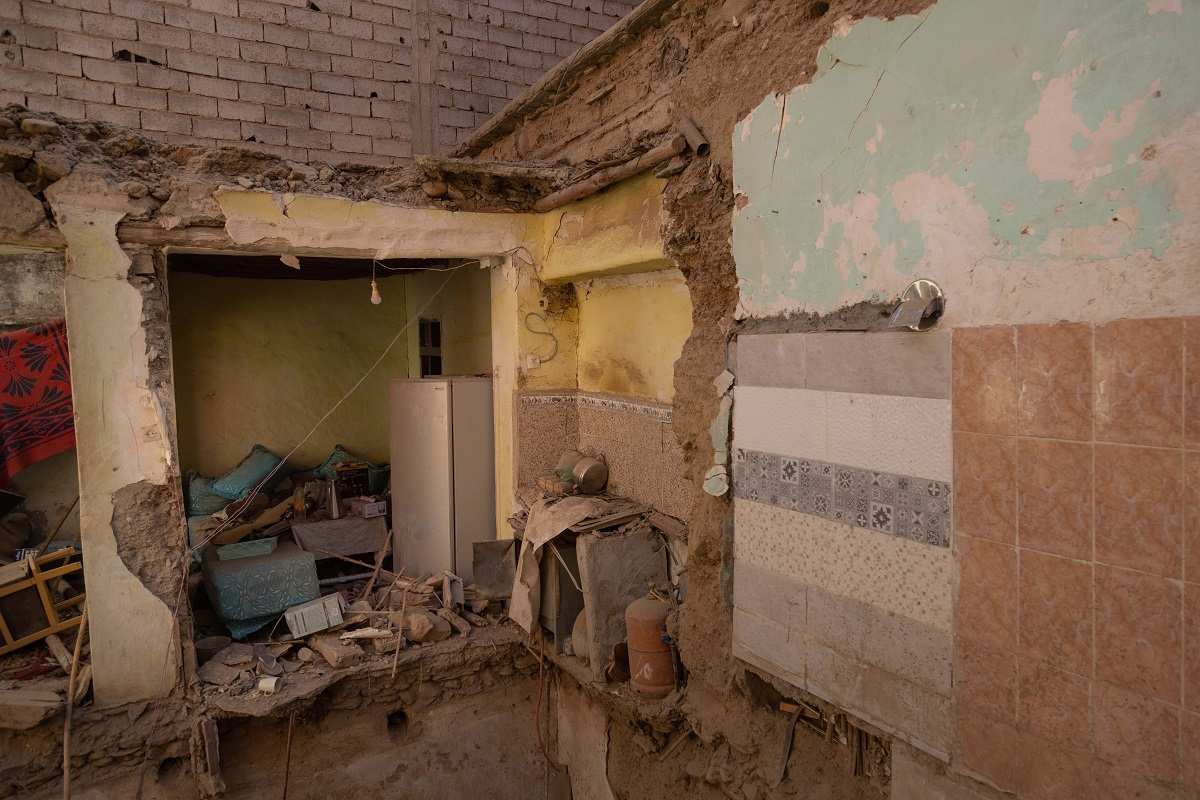
Families camp near their destroyed homes in Amizmiz on Sunday.
14:00 JST, September 11, 2023
AMIZMIZ, Morocco – Said Afouzar was at his sister’s house when the earthquake hit. As soon as the ground started to tremble, he rushed up the street home, desperate to reach his wife and two kids.

Said Afouzar and Elgoufi Nezha pose for a portrait near their home in Amizmiz on Sunday.
The moment he reached for the doorknob, the house collapsed.
Afouzar could hear his family screaming for help. He began to dig frantically through the rubble, pushing on even after a falling object injured his knee. Neighbors joined him. By 2 a.m. – three hours after the quake – they had managed to pull his wife out from under the debris. Around 10 a.m. Saturday, after digging nonstop, they reached his children.
It was too late.
For nearly two days, he said, he couldn’t speak. Only on Sunday afternoon, 40 hours after the quake, was he beginning to process all he had lost.
His home: A two-story house, now a gaping pit of mangled cement, plaster and splintered wood.
And his only children: Hamza, 18, and Yusra, 13. When the amateur rescuers found their bodies, Hamza’s arms were around his sister, as if to protect her, a relative said. The children were buried in the village cemetery.


Said Afouzar and Elgoufi Nezha’s destroyed home in Amizmiz, Morocco, on September 10, 2023.Their two children were killed in the earthquake.
“I feel that the world is done for me,” Afouzar said, his eyes watering. “I lost my house, I lost my family.”
Among the ruins were scattered remains of the life they had lived: An empty Fanta bottle on a living room table, bright blue brocade pillows covered in dust, a potted plant still clinging to a windowsill.
With nowhere to go, Afouzar, his leg bandaged, hobbled on a cane around a parking lot where displaced families had built tents from blankets strung on wires.
They could live on bread and tea, he said, but “we just need a house to sleep in.”
Moments later, his wife, Elgoufi Nezha, stumbled out of a van. She had just returned from the hospital in Marrakesh, where she was taken after being pulled from the rubble. A gash on her forehead was visible under her headscarf. She lifted her clothes to reveal deep purple bruises on her arms and abdomen.
Leaning on her husband, she recounted a frantic scramble to reach the children’s room, as slabs of clay fell on her shoulders and back. They were screaming for her.
Finally, their voices fell silent.
Afouzar said there were no local authorities on the scene that night, or in the morning, no bulldozers or cranes. Neighbors leaned on neighbors to lift heavy slabs of concrete.
On Sunday afternoon, local associations were passing out food in the town. But there was no sign of aid from the state. And proper tents were in short supply.
Around every corner, homes that had belonged to families for generations were simply gone.
Three-year-old Janette, her face covered in scratches, hadn’t stopped crying in the two nights since her house was destroyed, her father, Hassem Lassoum, said.
Those whose homes were still partially intact sent sons or brothers back to salvage what they could – blankets, pillows, tea sets, a stove – and camped in open lots.
“The authorities said ‘don’t go inside,'” Lassoum said. Buildings are still crumbling, they warned, and aftershocks remain a threat. But for most, it was worth the risk.
“It’s hard to be homeless,” Afouzar said.
Women and children took refuge from the baking sun on blankets laid out under beach umbrellas. Men knelt for evening prayer on straw mats in a barren field.
Fatima Bouskri, 60, wearing the same pajama pants she had on when the quake roused her from sleep, was still in shock.
“We are just staying here, asking God to do something,” she said.
Top Articles in News Services
-

Survey Shows False Election Info Perceived as True
-

Hong Kong Ex-Publisher Jimmy Lai’s Sentence Raises International Outcry as China Defends It
-

Japan’s Nikkei Stock Average Touches 58,000 as Yen, Jgbs Rally on Election Fallout (UPDATE 1)
-

Japan’s Nikkei Stock Average Falls as US-Iran Tensions Unsettle Investors (UPDATE 1)
-

Trump Names Former Federal Reserve Governor Warsh as the Next Fed Chair, Replacing Powell
JN ACCESS RANKING
-

Producer Behind Pop Group XG Arrested for Cocaine Possession
-

Japan PM Takaichi’s Cabinet Resigns en Masse
-

Man Infected with Measles Reportedly Dined at Restaurant in Tokyo Station
-

Israeli Ambassador to Japan Speaks about Japan’s Role in the Reconstruction of Gaza
-

Videos Plagiarized, Reposted with False Subtitles Claiming ‘Ryukyu Belongs to China’; Anti-China False Information Also Posted in Japan























